
Avoid Scams on Facebook!
(IMAGE HEAVY POST)
So many scams on Facebook. So many people miss the warning signs and fall for them! They’re easy to spot if you learn what to look for.
The scammers use fake profiles. The groups they join are public so the post can be shared by the uninitiated.
What do they get out of it? In the case of a lost pet, kind hearted people will message them, offering to send them money to help care for the pet that they don’t have possession of anyhow. They post random tear-jerking pictures they find on the internet, designed to get a response.
It’s not always injured pets they found. Sometimes it’s a child in trouble, or an old person who wandered off, or anything else that will make people share share share! After a few days, the post has dropped low enough in the group that the admin doesn’t see it and catch on to what they’re doing. The scammer will edit the post with an ad designed to scam anyone who falls for it. By this time, the post has been shared by hundreds, maybe thousands of people. Friends of the sharers will see it, and may respond. They may fall for the scam and get duped out of money, or give personal information that gets their account hacked, or whatever else the scammer is after. Be aware and stop sharing these scam posts.
Lost & Found
These are almost always “found dogs”, but sometimes lost dogs, lost or found humans, or lost or found objects.
These are posted by fake profiles, almost always in buy-sell-trade groups. These are designed to pull the heart strings, and people will share the post to their own timeline to help out the person who posted the scam. After the post gets shared a zillion times, the scammer changes it to an ad designed to make people click the link so they can get scammed or hacked.
The fastest way to tell that these types of posts are scams is when they says BUMP THIS POST and the op immediately turn commenting off, like the following example. The reason they turn off commenting is to prevent savvy people from calling them out.
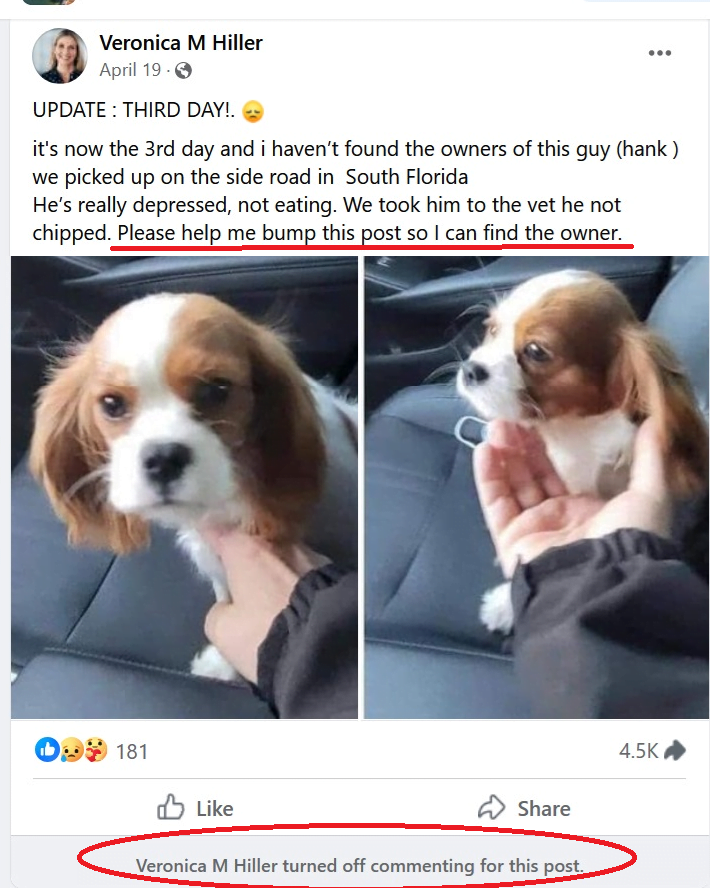
Sometimes these are copied from real posts. You can tell when a post is real because it doesn’t have commenting turned off, and the op gives a real phone number.
This following image illustrates what happens after the post gets shared by a lot of people.
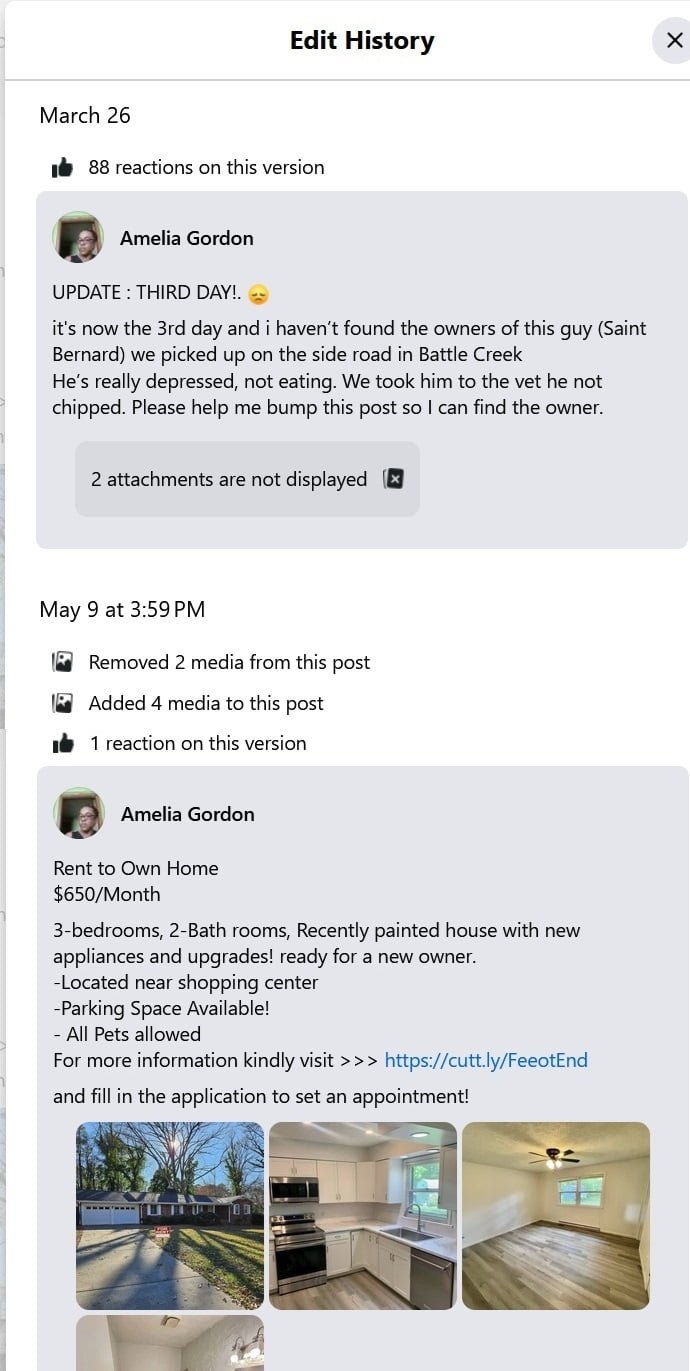
I clicked “View Edit History” to get this screenshot.
You can see that it started out as a “found dog” post. The scammer went back a few weeks later and changed it to a real estate ad. Sometimes the ad will be a ridiculously cheap house, like this one. Sometimes it will be something else. Whatever it is, it’s designed to make people curious enough to click the link. DON’T CLICK THE LINK! They are either trying to get your personal information, or your device will be infected with malware.
The following is a tiny sampling of screenshots I’ve taken. Each and every one of these was posted many times by various fake profiles in groups all over the country. They just change the town name to match the group they’re posting it in.
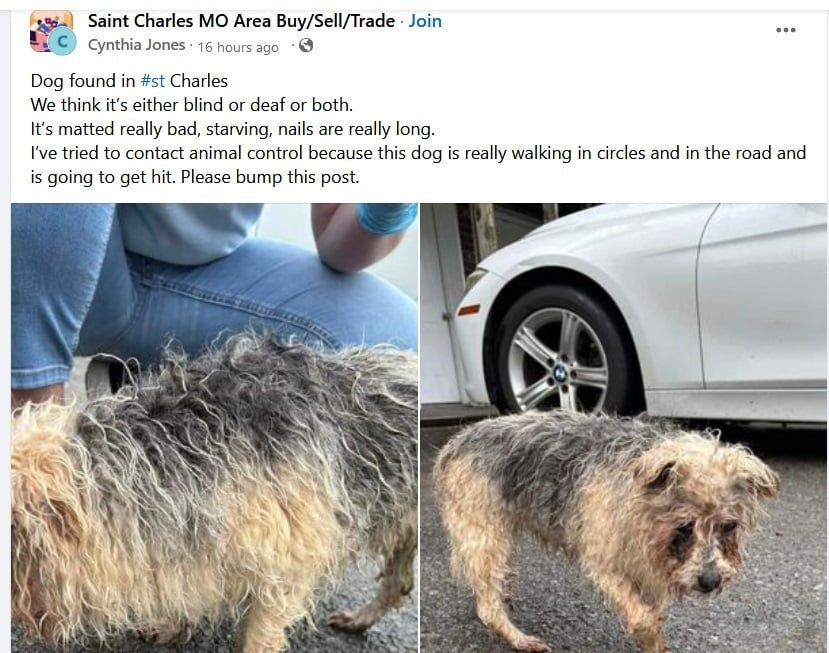

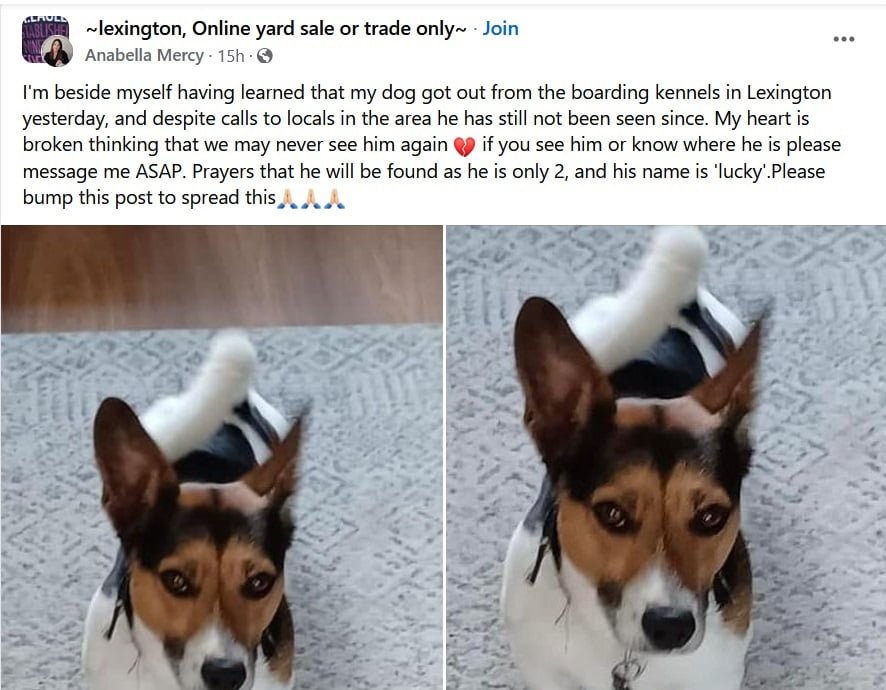

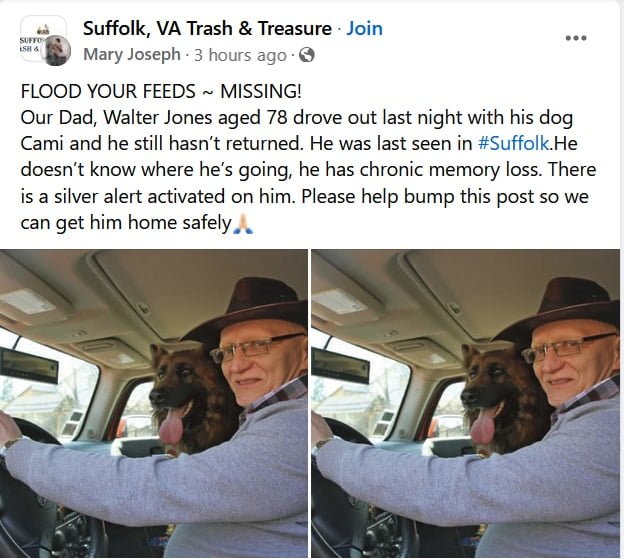
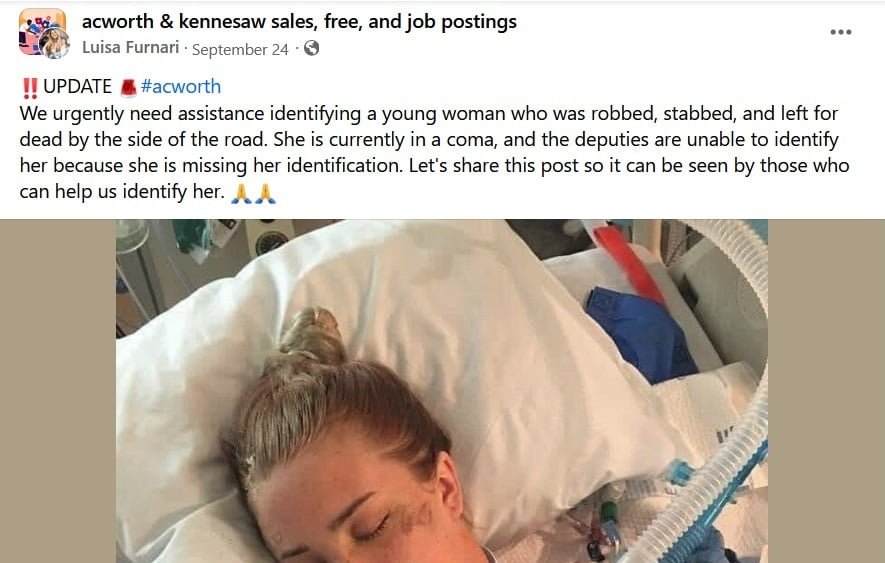
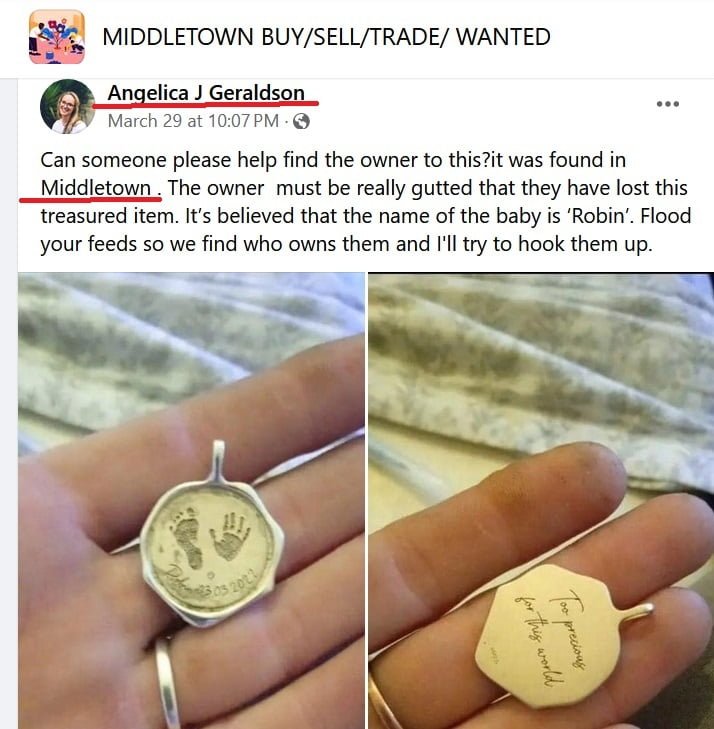
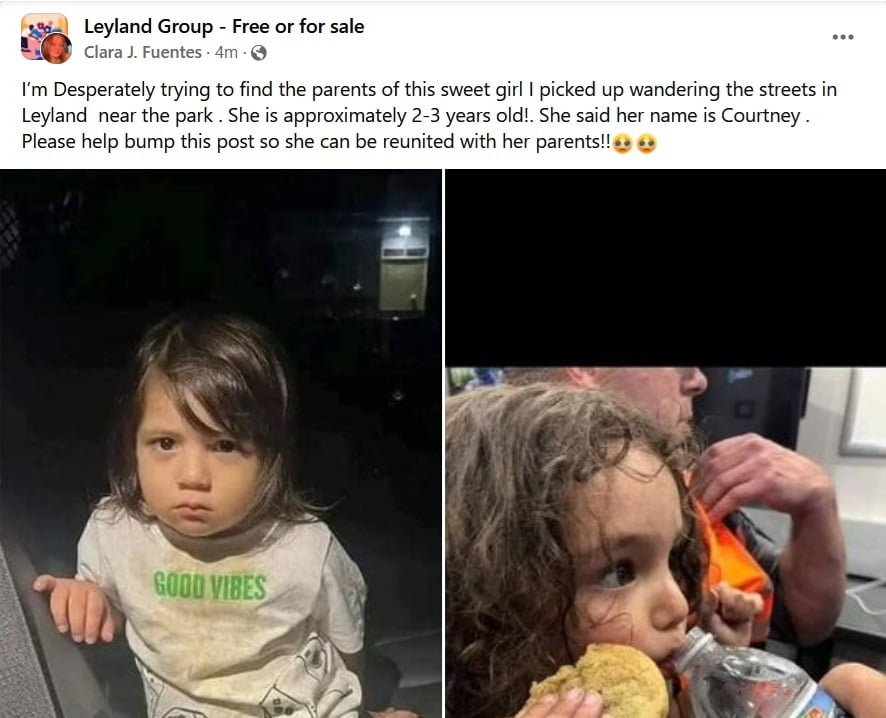
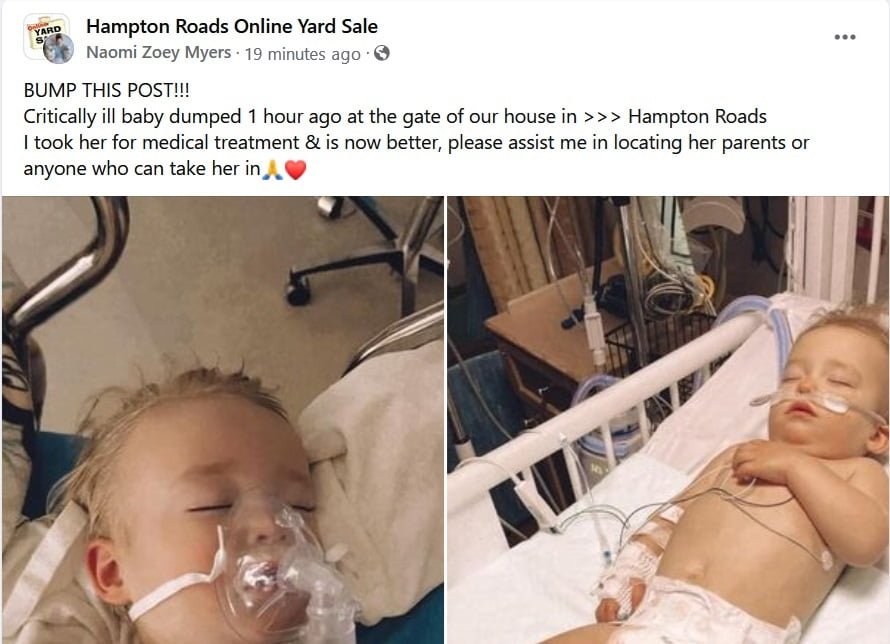
Looking For…
Less common than the above, but they still make the rounds periodically.
These two examples are looking to rehome a monkey, and looking for biological parents. I’ve seen other similar posts as well. I don’t have a screenshot for it, but a while back I saw one going around that claimed siblings were separated and adopted out decades before, and the poster was trying to find them. I’ve also seen many trying to “give away” various kinds of animals due to the owner dying or some such.


Warnings
These can be anything which puts people on alert through fear or anger. People will share to warn their own friends.
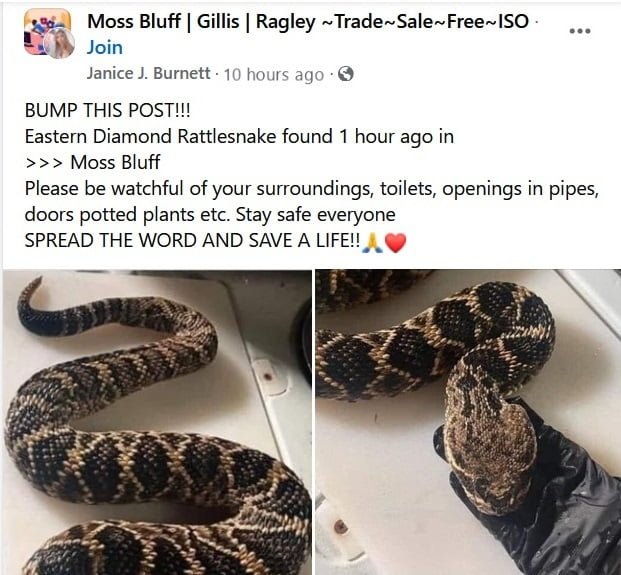
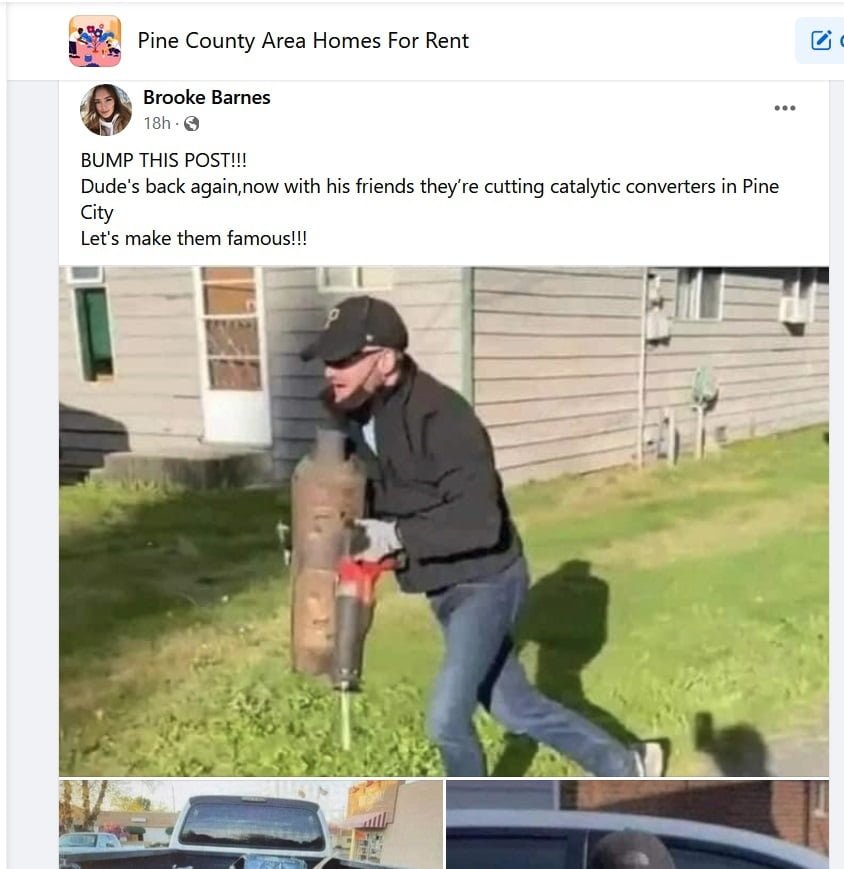
Contests and Giveaways
These promise a valuable gift to responders.
Sometimes they set up a fake page pretending to be a well known company. Sometimes they post in some random group promising expensive merchandise if you answer a question or perform some act to “earn” the gift. They will either provide a link to click, or they will pm responders and give them a link. The link often goes to a form to fill out with your info so you can claim your prize. NEVER click those links. They are designed to hack or scam you in some way.
The first two images below are for a free steak dinner. Note how some people try to warn other users, and the spam bot doesn’t recognize the warning.
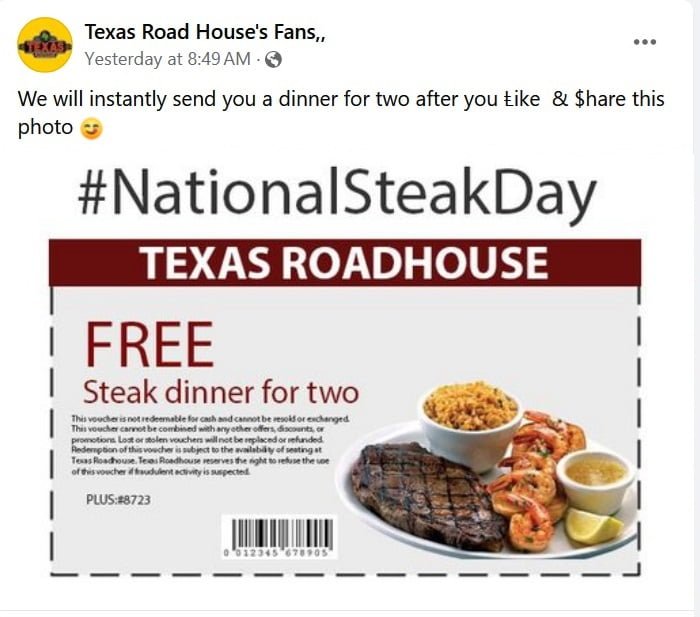
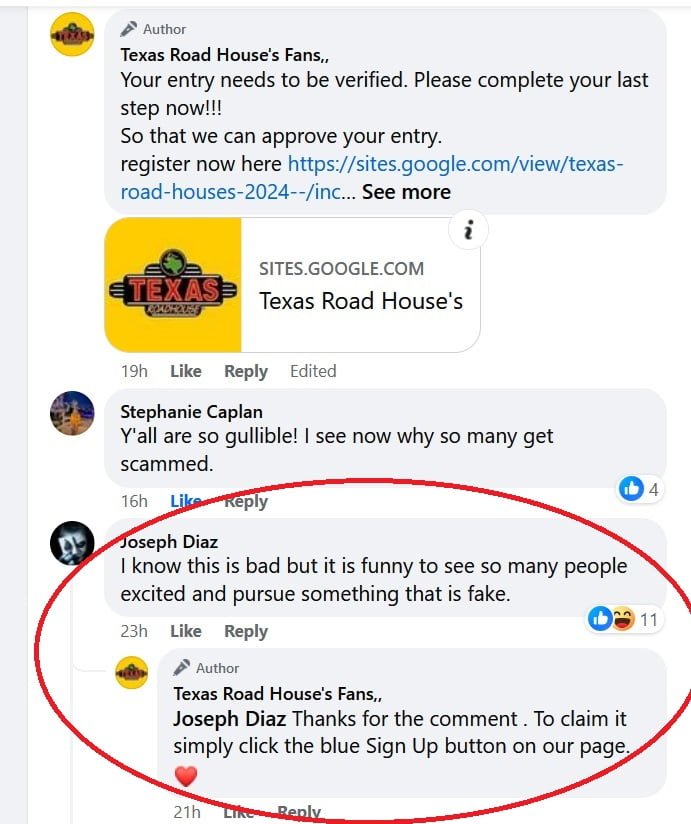
Here’s a response I made in a Tiny House giveaway. Again, the spam bot doesn’t recognize the warning.
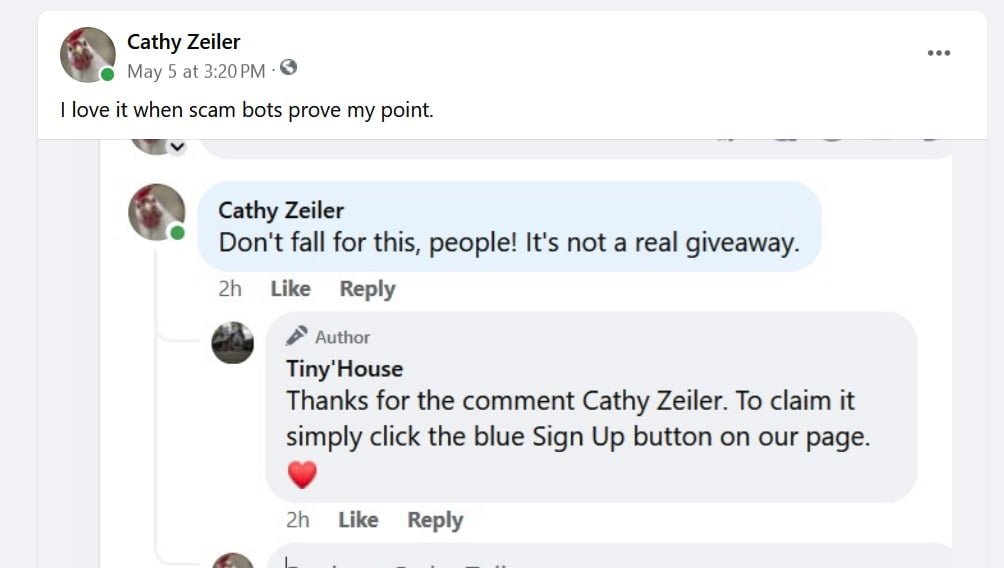
In this one, you can see it doesn’t matter what answer people give, they “win”.
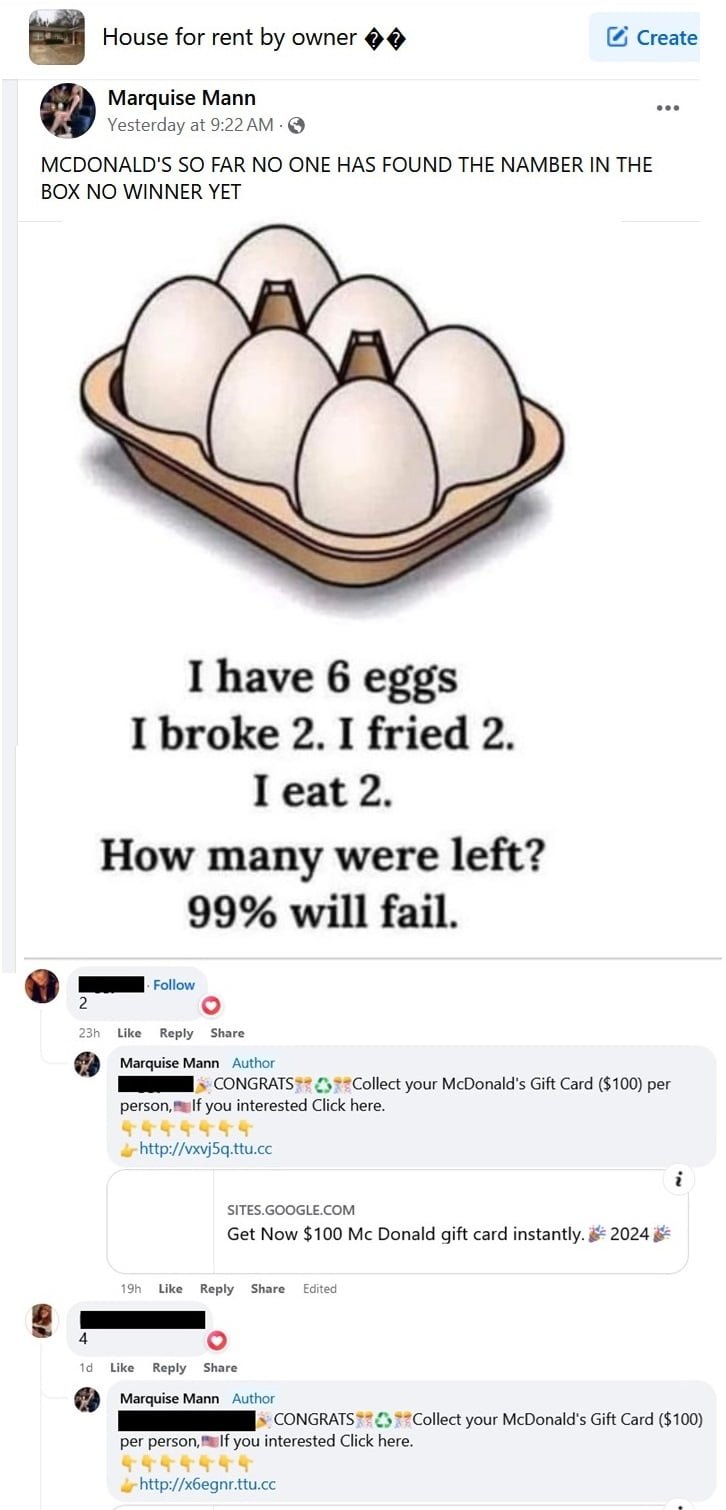
Below are some more scam giveaway examples:
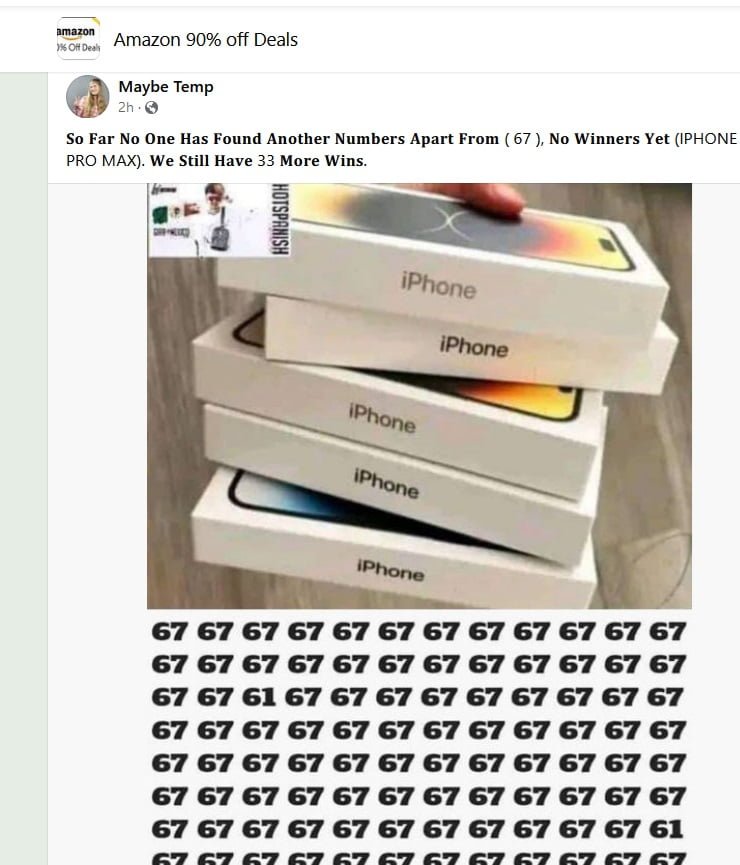

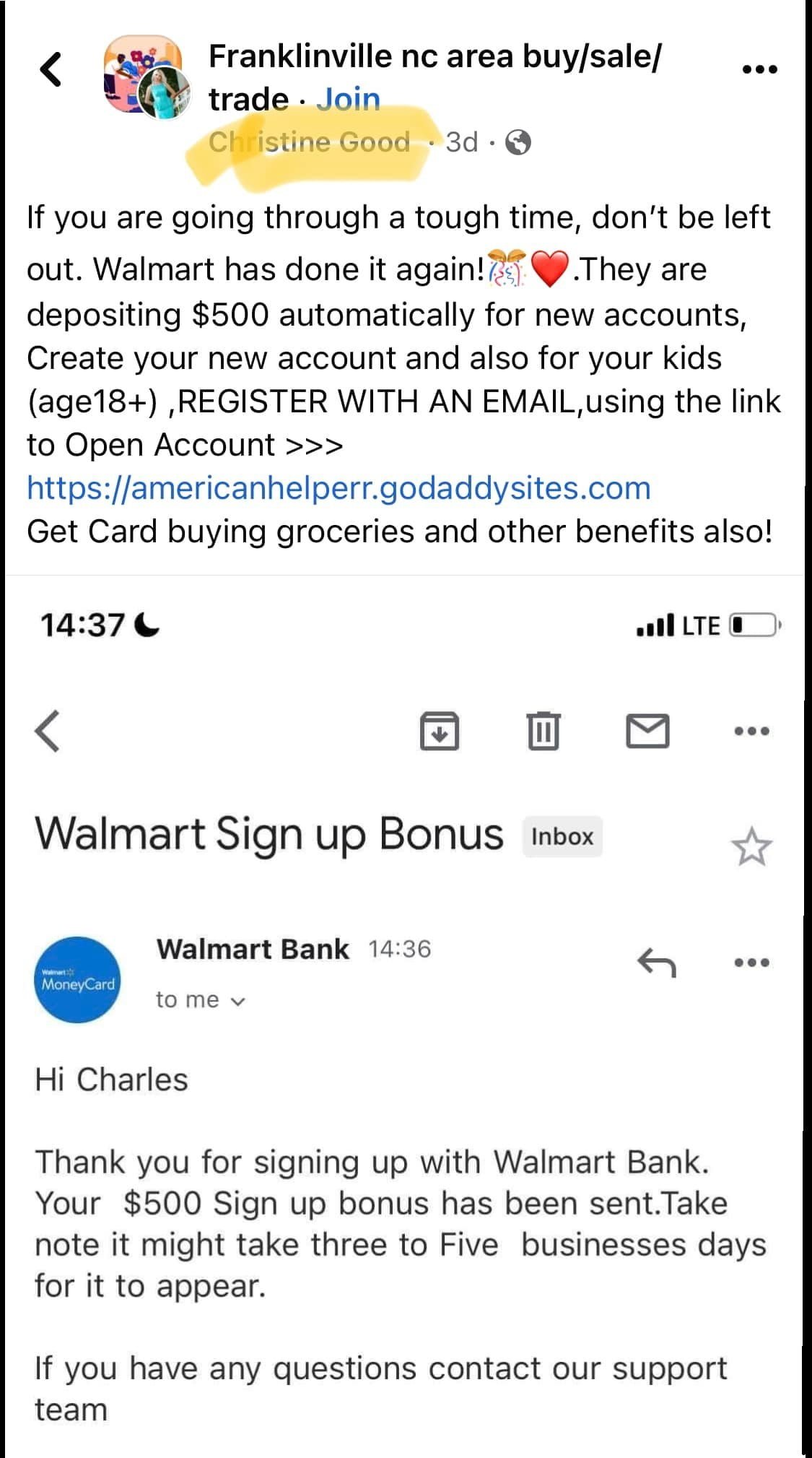

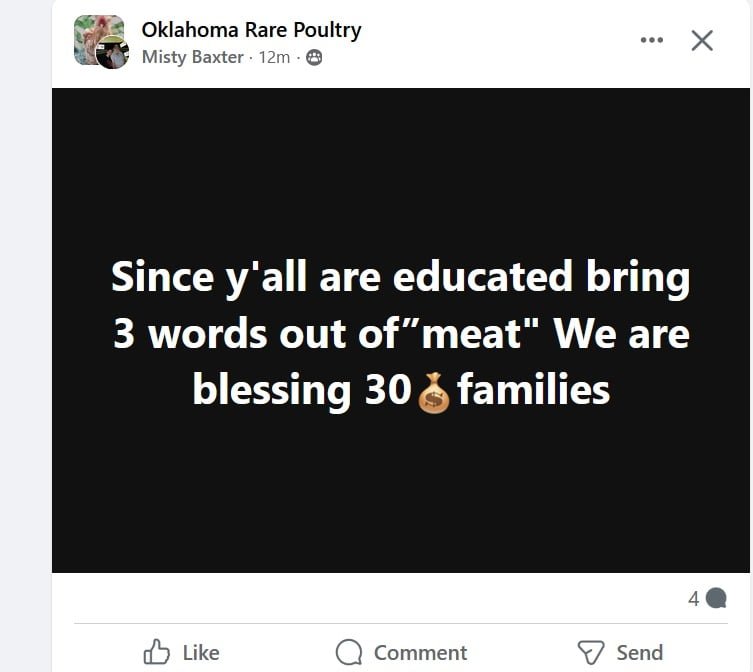


Cheap Merchandise
You know what they say, “When it’s too good to be true…”
These pretend to be real companies. Sometimes they disguise themselves as a well known company. Sometimes they make one up. The link they provide will often go to a real website, which looks professional. It’s easy to be fooled by it. You’ll provide your credit or debit card info, but you’ll never receive the merchandise you ordered. Sometime later, maybe weeks or months, your card will be hacked or your bank account drained.
The first image pretends to be Wayfair. Note that the link does not go to Wayfair! The image was lifted from a legit small company called Carolina Coops, which is not associated with the scam or Wayfair.
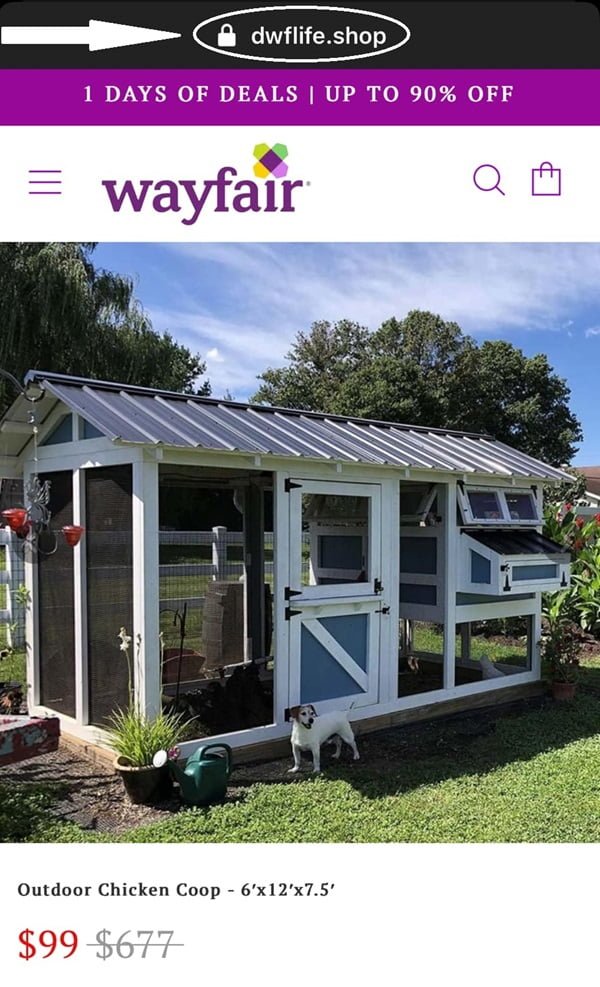

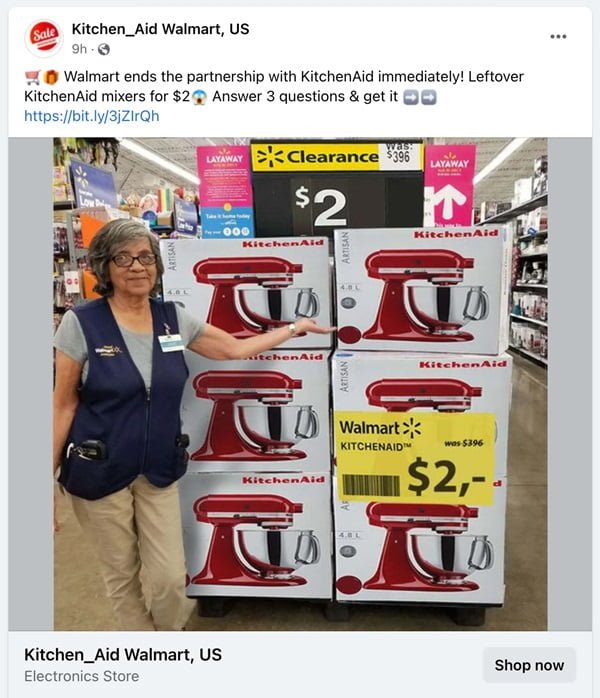
Moving Sales and “Local” Businesses
These scammers take the game to a whole new level, especially when large amounts of money are involved. Their method can vary, but this is what they often do:
- Set up a profile and list their location as a certain area
- Join a Buy-sell-trade group that is local to that area.
- Spend a few days friending people in that group
- As soon as their profile appears to be a legitimate resident of that area, they make their move
- They will post their ad in the group and on their fake timeline
- They look legit and have a lot of “local” friends, so people are fooled
- If anyone wants to visit their place to see the merchandise, they make an excuse about not being home for a couple of days
- People will send them money via cash-app or whatever else to hold the goods
- After a few days of taking money, which can amount to hundreds or thousands of dollars, they block everyone who responded to them and their profile vanishes.
This is a successful scheme, because I’ve seen so many panicked people post that they are out the money they sent. They realize too late that they were scammed.
The first image below was submitted to a group I moderate. Guess what post didn’t get approved?


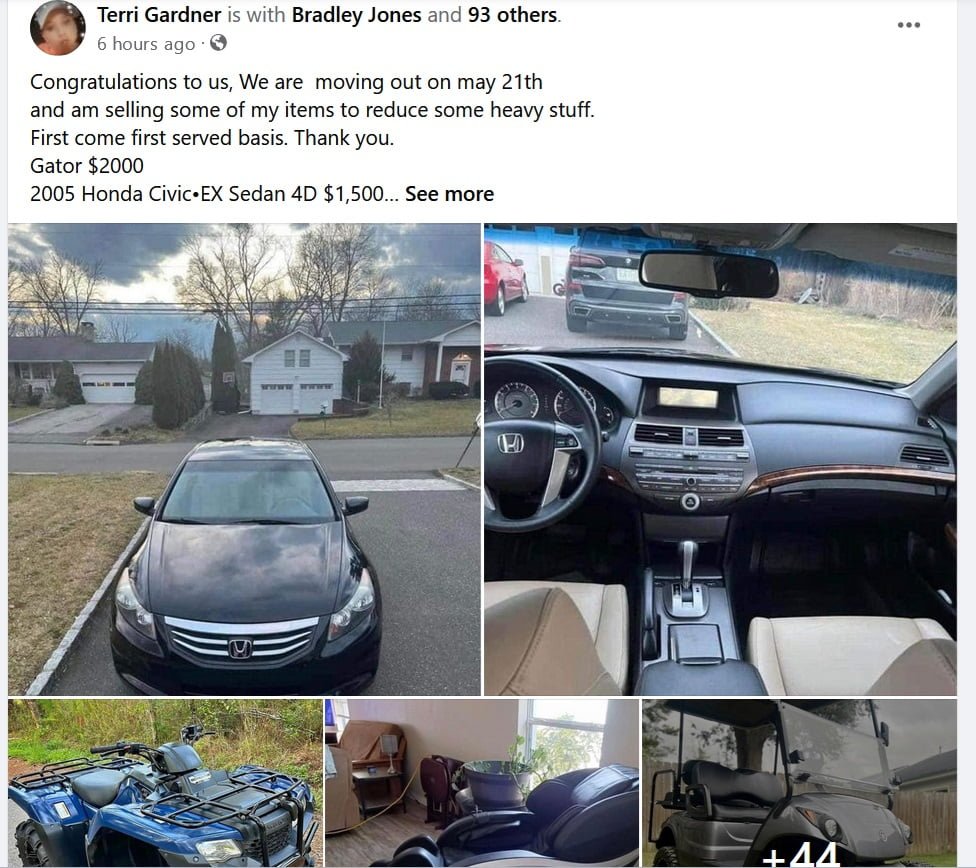

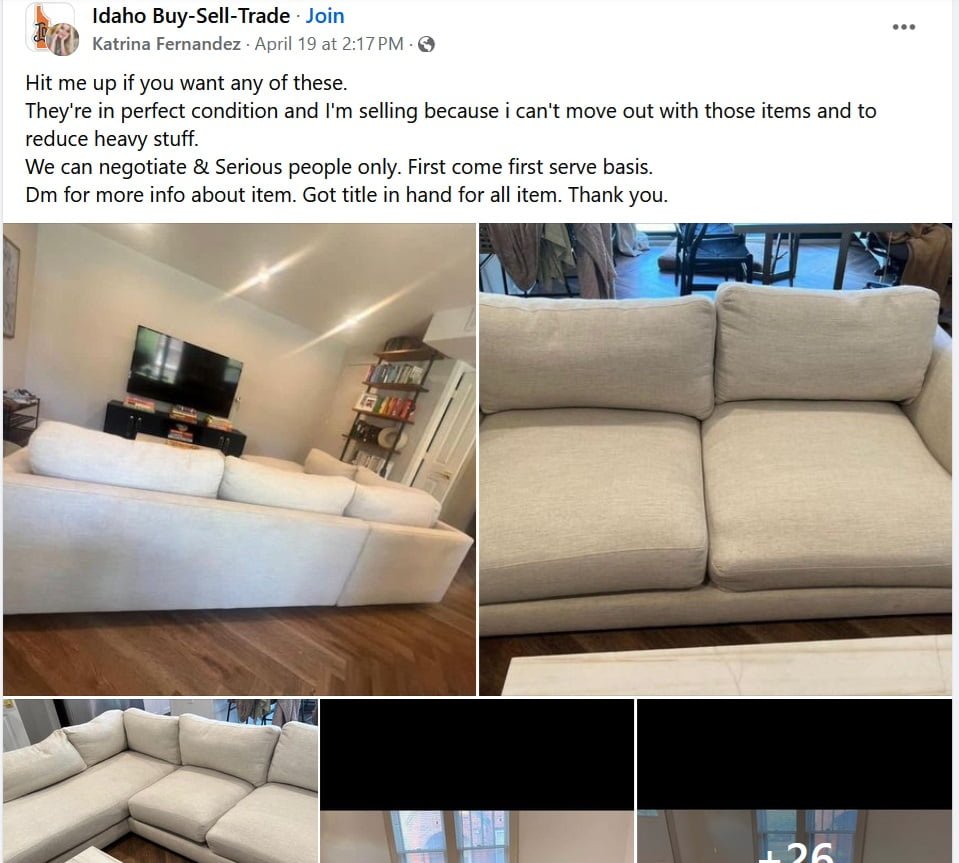
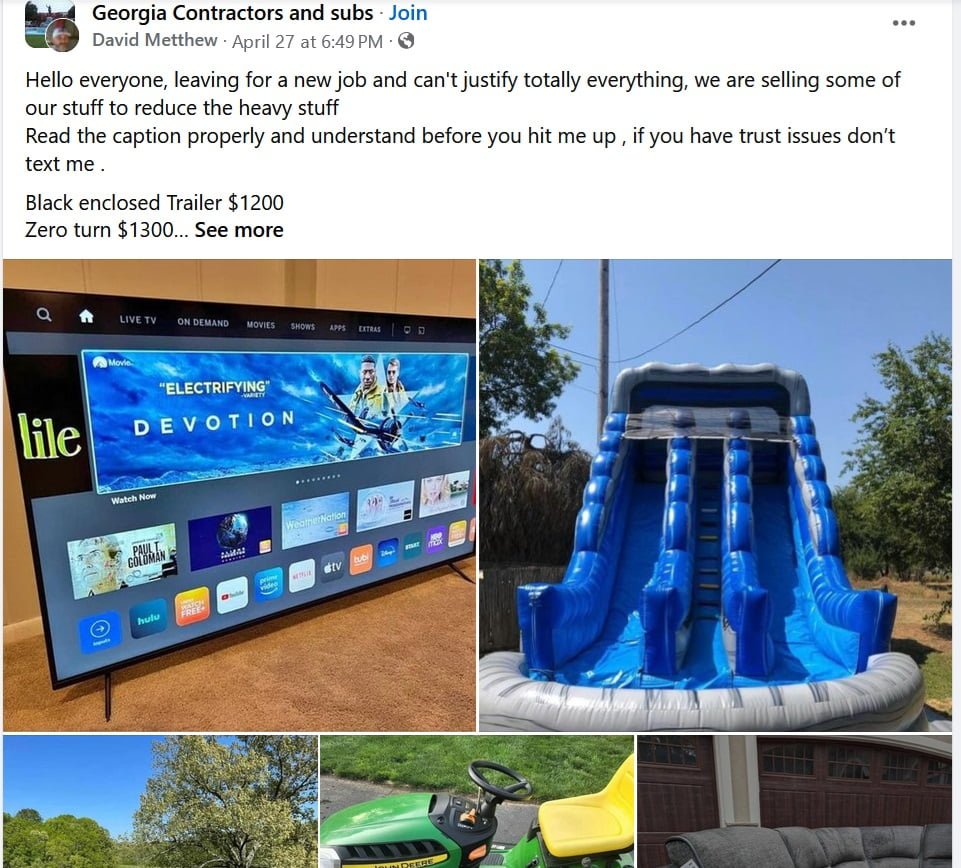


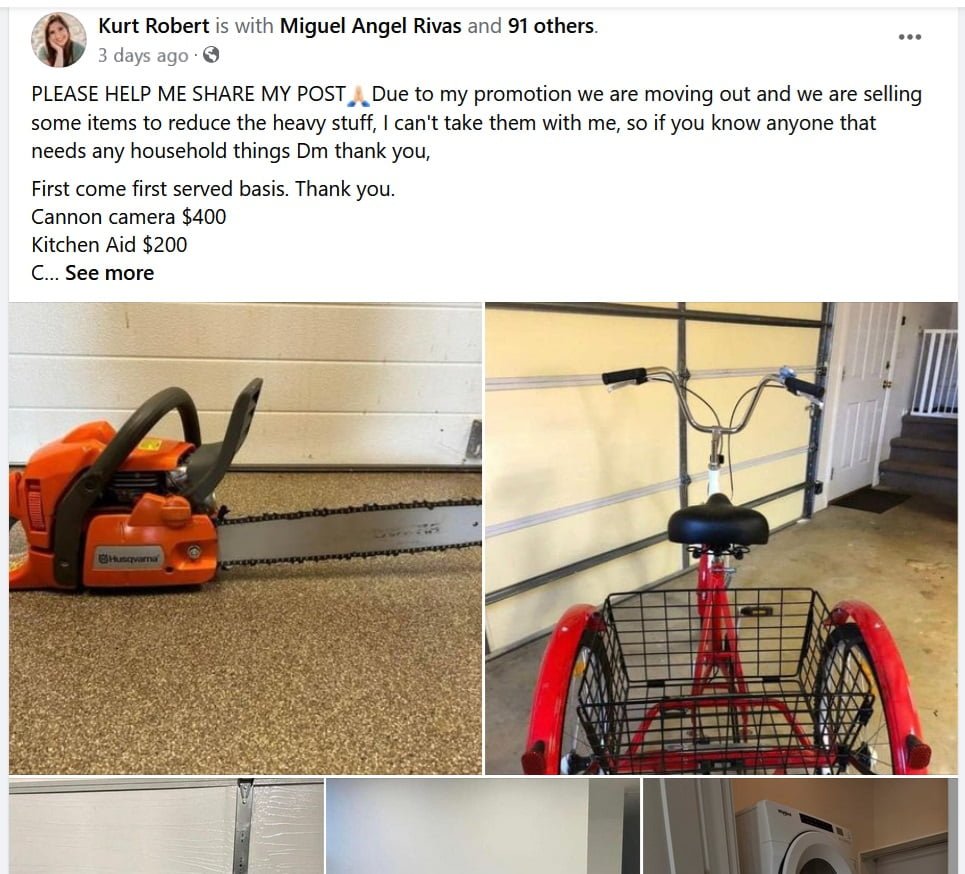
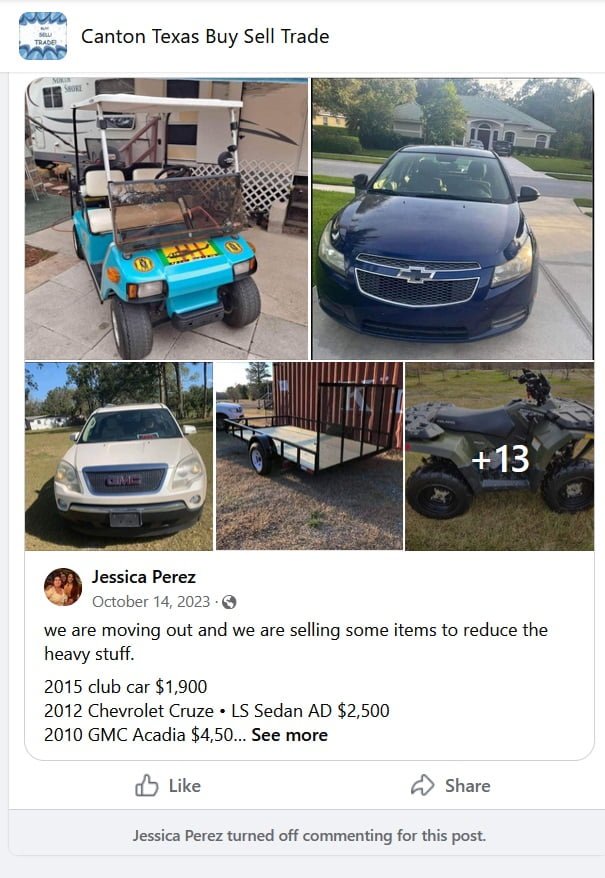
Services
These people pretend to be local, and they provide services people need. It’s almost always duct cleaning and car detailing, but I’ve seen other offers also.

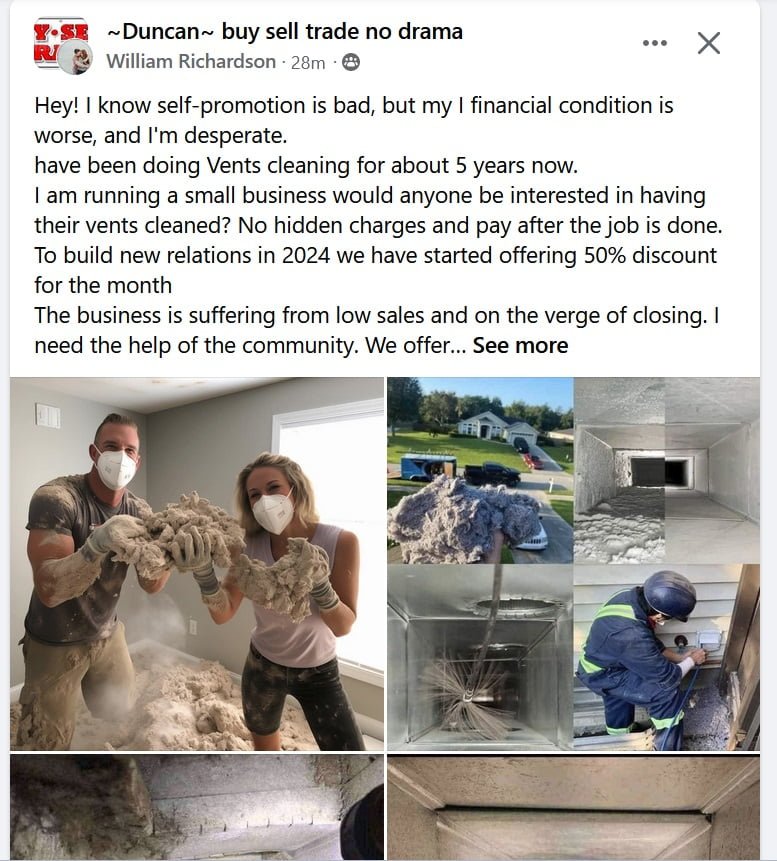
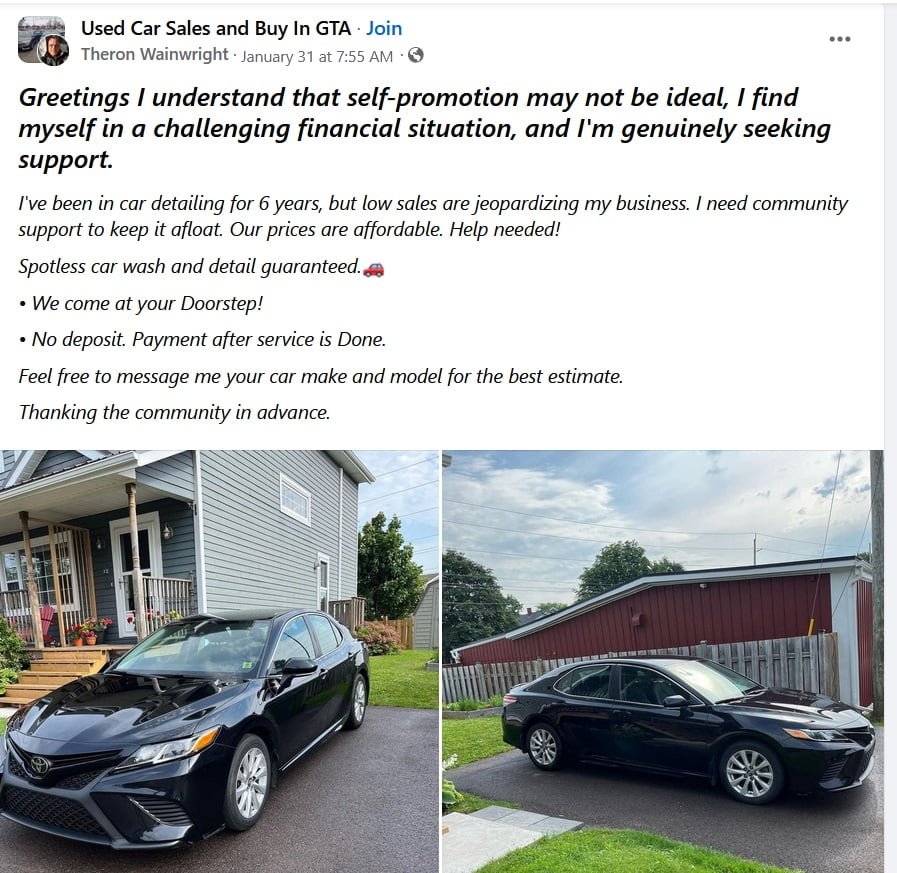
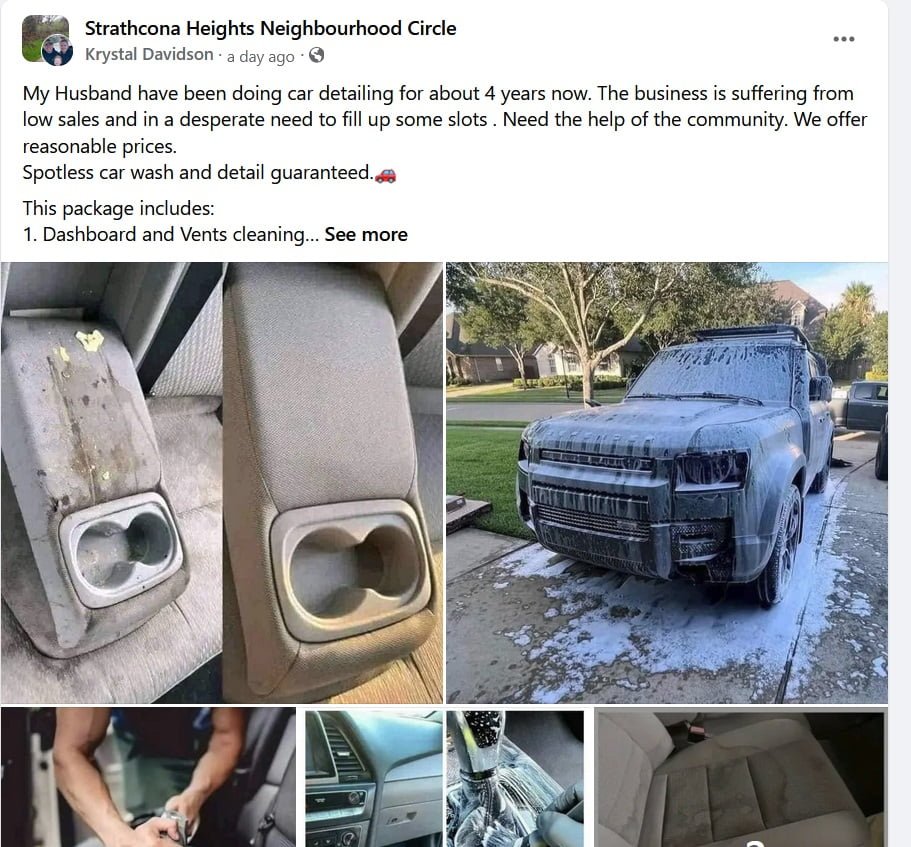
Work From Home
These often target women who would love to avoid the commute and reduce child care costs. The goal is usually to get personal information that they can use to scam the responders.
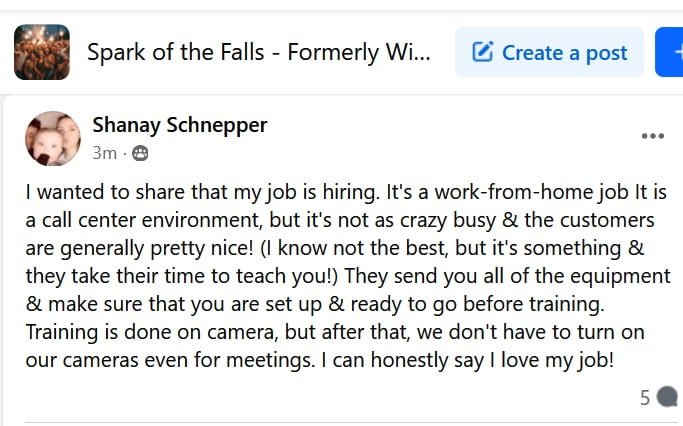
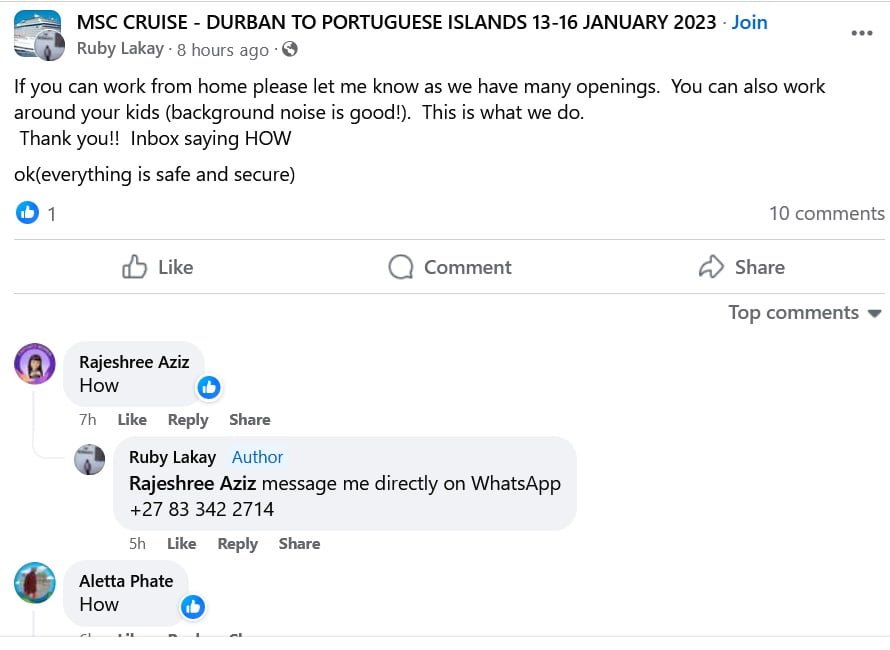
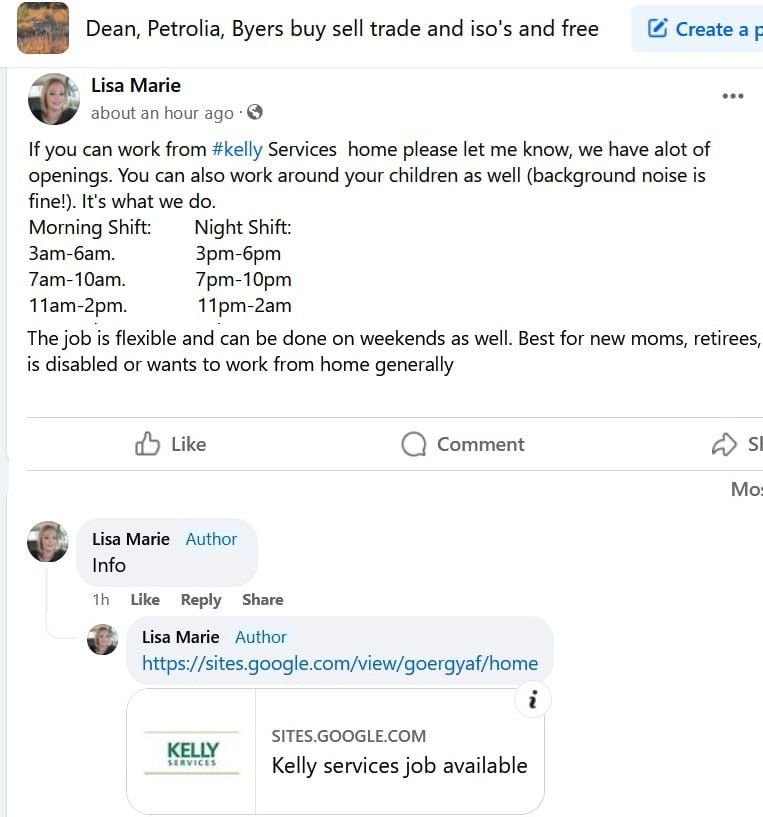
More Scams
So many types of scams, I can’t cover all of them!
Here are a few more to watch out for:
Fraudulent charities and GoFundMe campaigns
Scammers will set up websites that look like well-known charities, or GoFundMe campaigns needing help with medical costs, recovery from a burned down house, or anything else that elicits sympathy. If you want to give to your favorite charity, don’t click a link on Facebook. Go directly to their website.
If you want to help someone down on their luck, stick with people you know, or someone who’s been investigated and confirmed by the local news team.
“Is this you in this video?” link scams
You’ll receive a message from someone on your friends list about a photo or video that you’re supposedly in. If you click on the accompanying link, you’re taken to a fake website that asks for login details or infects your device with malware.
Hacked friend asking for authentication codes
Either a friend’s account is hacked and taken over by a scammer, or they clone a friend’s account. The fake friend claims they’re locked out of their account and asks you to share a two-factor authentication code that they’ll send to your email address or phone number. The scammer will then be able to use this code to hack your account.
Phony sellers on Facebook Marketplace
Don’t send money to anyone to hold merchandise for you. If they don’t let you come to them and see the merchandise before handing over the money, it’s a scam.
Phishing emails claiming to be from Facebook Security
Scammers will send you fake emails or private messages that look like they’re from Facebook in order to try and gain access to your account or page. They want you to click a link. Don’t click it!
Survey Offers
The scammer wants you to complete a survey or go to a website to sign up to take surveys for big rewards. There are legitimate survey companies, but they don’t post ads in Facebook groups. Don’t fall for it.
How to Avoid Scams
Don’t click links
Don’t give personal information
Don’t send money to strangers
And please stop sharing scams!






